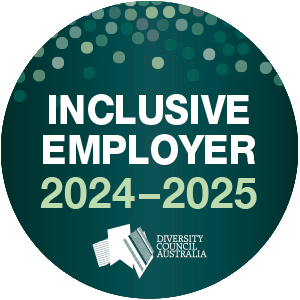25 July 2019
The MARAM victim survivor practice guidance supports professionals to understand their relevant responsibilities under the MARAM Framework towards the identification, assessment and ongoing management of family violence risk.
The MARAM practice guidance includes:
- Foundational Knowledge Guide: This guide underpins all MARAM responsibilities for practice. It outlines key elements of the MARAM Framework, the service system, the evidence-based family violence risk factors that underpin all levels of risk assessment practice, and presentations of risk across different age groups and Aboriginal and diverse communities. The Foundational Knowledge Guide is required reading for all professionals across leadership and governance, management and supervision to direct practice roles.
- Responsibilities for Practice Guides 1-10: Guides 1-10 reflect each of the ten responsibilities set out in the MARAM Framework. These guides build on Foundational Knowledge to provide practice guidance from safe engagement, identification of risk, through to levels of risk assessment and management, secondary consultation and referral, information sharing, and multi-agency and coordinated practice. The practice guides also inform how the MARAM risk assessment tools are used. Professionals should work with their organisational leaders to understand their role and to identify which responsibilities they should be applying in practice.
*Professionals should ensure they receive MARAM training appropriate to their role prior to using the practice guides and risk assessment tools.
The MARAM practice guides can be accessed online via https://www.vic.gov.au/maram-practice-guides-and-resources.
The full suite of MARAM victim survivor practice guidance is currently being professionally designed. The designed guides will be available online in September 2019.
Summary versions of Foundational Knowledge and Guides 1-10 are currently being finalised and will be available online within the coming month. Additionally, in order to address the issue of accessibility and to increase useability, a project to develop interactive practice guidance is underway. Further information will be available later this year.
All MARAM practice guides and tools were developed through extensive consultation with a range of stakeholders including experts, departmental policy and practice areas and professionals in specialist and universal services, including those specialising in working with Aboriginal communities, diverse communities, children, young people and older people.
MARAM implementation supports
MARAM training
Professionals should ensure they receive MARAM training appropriate to their role prior to using the practice guides and risk assessment tools.
Family Safety Victoria is funding DVRCV to deliver MARAM leading alignment training for organisational leaders and comprehensive renewing practice training for experienced specialist family violence practitioners. To register, please visit: https://training.dvrcv.org.au/our-courses/#MARAM
Training in ‘brief and intermediate’ and ‘screening and identification’ is being tailored and delivered by relevant departments to ensure consistency with different workforce approaches to MARAM. Please get in touch with your relevant Department for more information.
Organisational embedding guide
An organisational embedding guide is currently being developed to support organisational leaders in the process of aligning to MARAM. The guide will include specific key actions and activities organisational leaders can undertake to determine responsibilities for staff across their organisation and specific case studies to demonstrate how organisational leaders can ensure their organisations policies, procedures, guidance and tools align to MARAM. The guide will be available late August 2019.
In development – perpetrator focused tools and practice guidance
Family Safety Victoria is also leading a program of work to develop evidence-based perpetrator focused tools and practice guidance, in line with recommendation 1 from the Royal Commission into Family Violence. Work has commenced and will be available by early 2020.
For any further information please email infosharing@familysafety.vic.gov.au
For further information relating to No to Violence’s role in supporting the implementation of the MARAMIS reforms, please contact ebonyw@ntv.org.au








